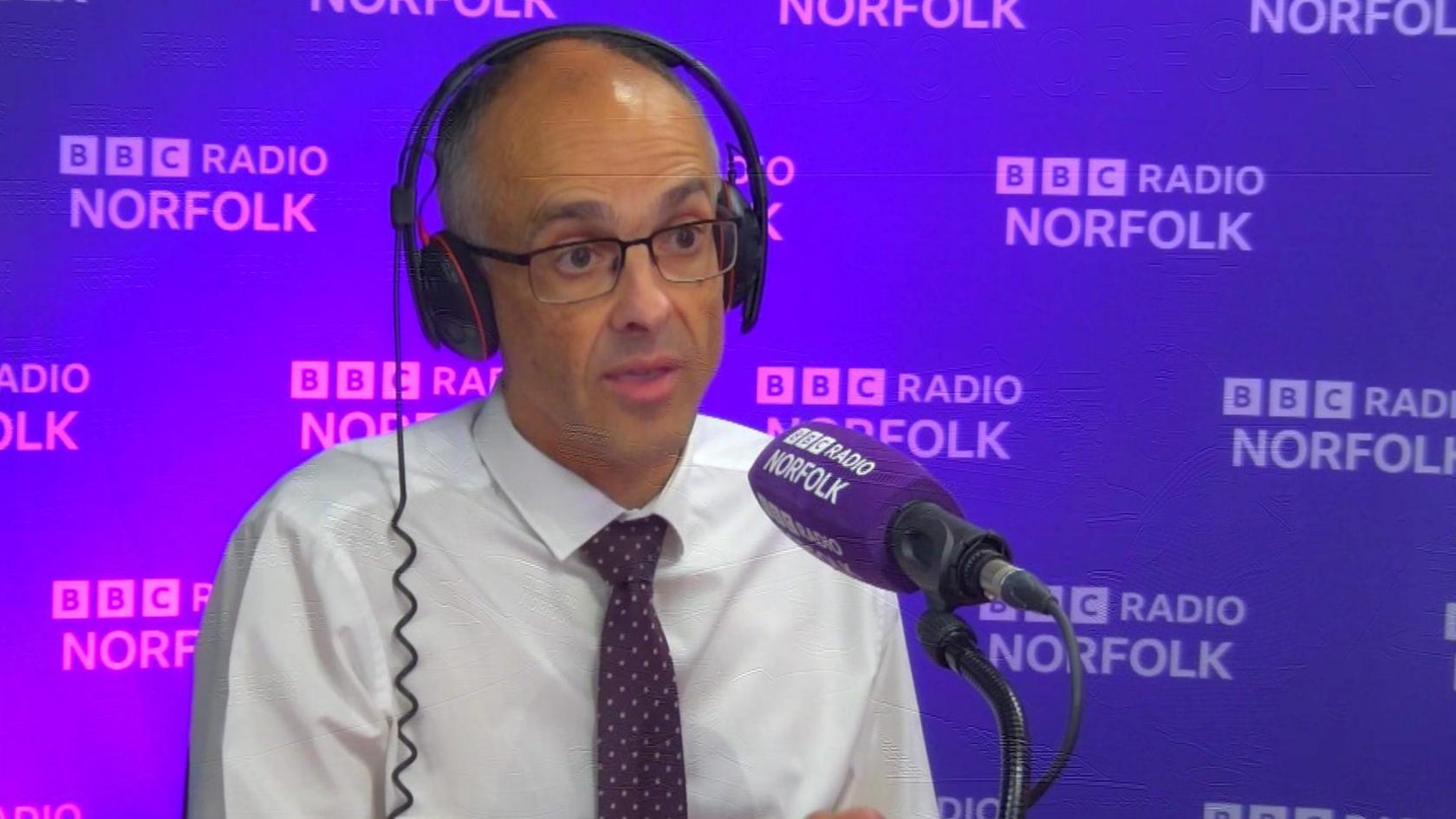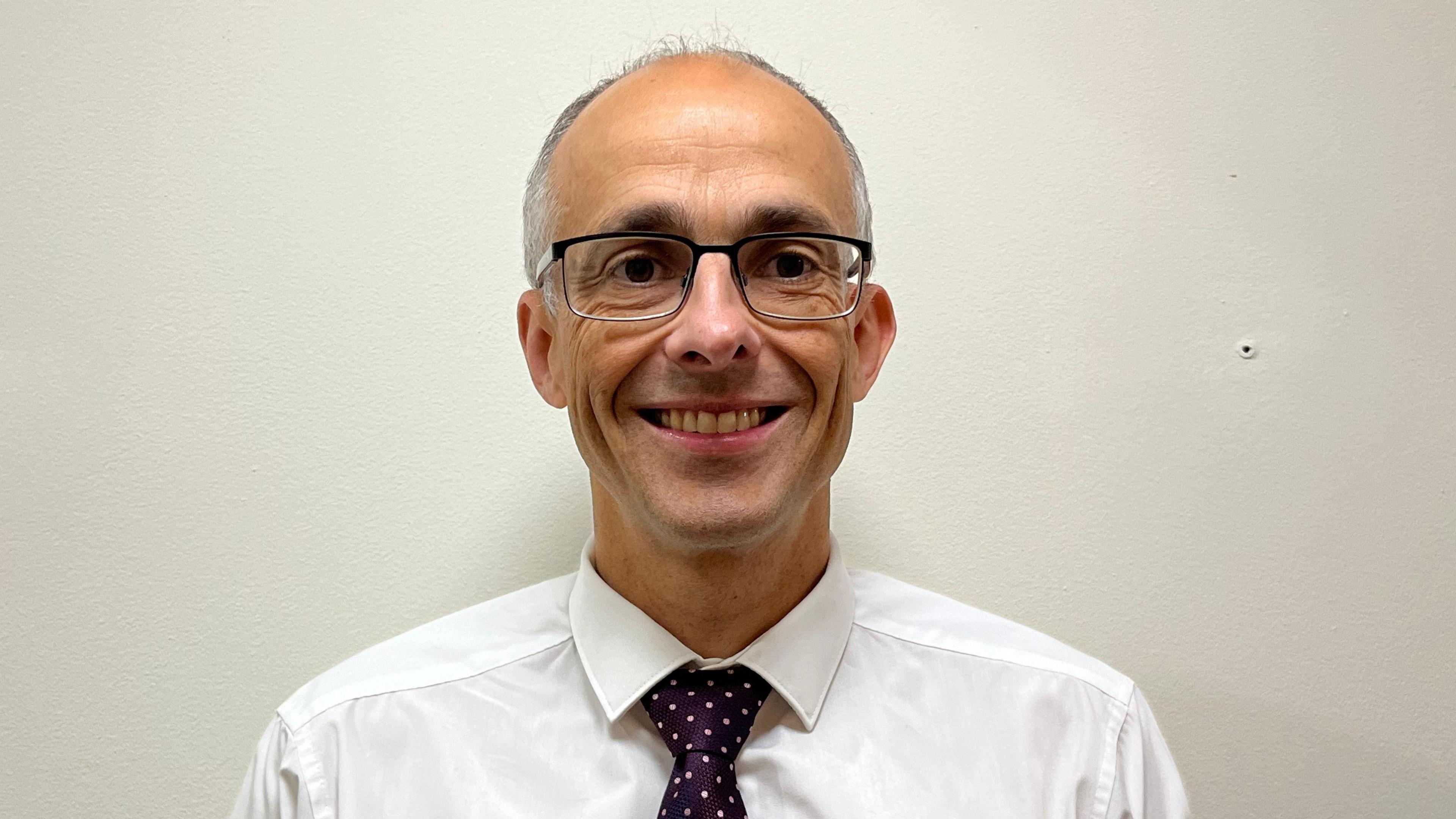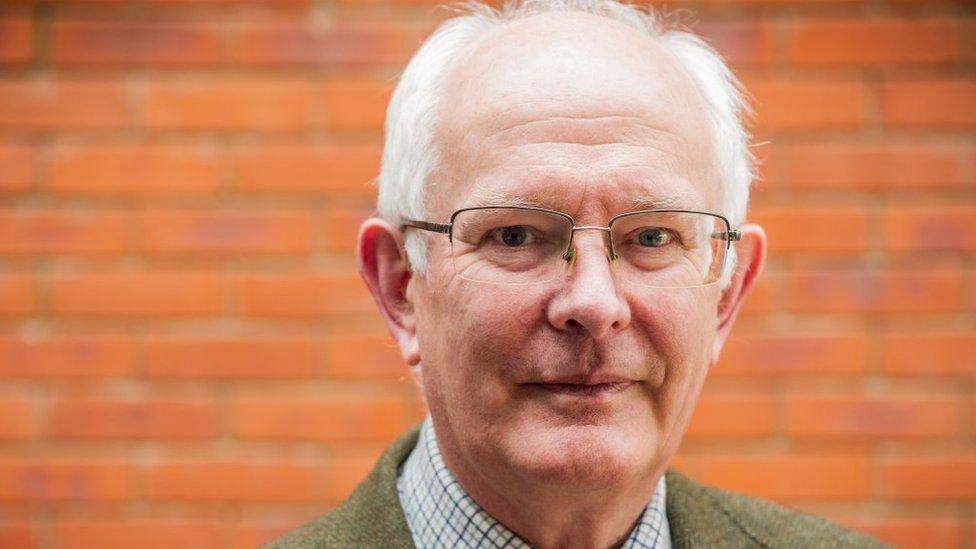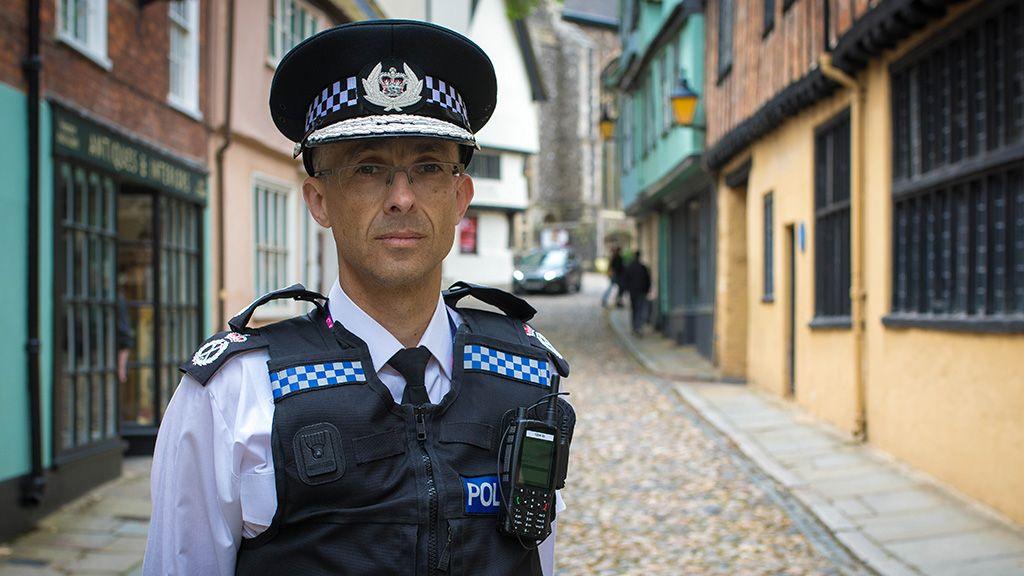Five takeaways from police chief in the hotseat

Chief Constable Paul Sanford took questions from BBC Radio Norfolk presenter Edd Smith as well as listeners
- Published
Norfolk Chief Constable Paul Sanford has been in the hotseat on BBC Radio Norfolk.
He joined the force in 1999 before moving into his current role in December 2021.
Mr Sanford was taking questions from the BBC Radio Norfolk Breakfast presenter Edd Smith, as well as those from listeners.
Here are five takeaways from what he had to say…
1. Riots and unrest
Hundreds of people have been arrested in connection with riots and anti-immigration protests across the UK in recent weeks.
It follows the fatal stabbings of three girls in Southport, Merseyside on 29 July.
In Norwich, up to 400 people, carrying banners, flags and placards, were estimated to have gathered at the peak of a peaceful counter-protest along Gentleman's Walk in Norwich on 10 August.
Mr Sanford said his force was "absolutely ready" for any riots or civil unrest and had officers on standby should any events occur in the county.
He added that the recent protests in Norfolk had passed off without disorder.
"I believe that the reason we haven’t had disorder here is, in large part, because of the way that Norfolk generally behaves when it comes to these issues," he said.
"We’re a good, proud county.
"But it's also because of the actions we’ve taken to stop protesters, or those who want to commit disorder, in their tracks."
2. Protecting communities
In the wake of national unrest, Mr Sanford said his officers had been "knocking on doors" of people who, officers believed, might have wanted to get involved in disorder.
The chief constable also said his force had been offering increased security to minority groups who he said may be "fearful" following the recent civil unrest.
But he denied there was evidence of what some termed "two-tier policing" in the county.
It followed a post on X by the entrepreneur Elon Musk, questioning why all communities "weren't protected" in Britain.
Mr Sanford said his force was toughest on those who committed criminal acts.
"What we’ve seen in the disorder is wanton, criminal behaviour," he said.
"Smashing windows, that’s not protest. Throwing bricks at police officers is not protest.
"If someone wants to call that two-tier policing they can, but the reason there’s a difference is because they are perpetrating disorder.
"What we saw in this county at the weekend was protest and protest where there was no disorder and therefore there was no arrest. That’s the difference."
3. 'Swift justice'
Mr Sanford also spoke about sentences being handed down to those committing disorder across the country.
He said he hoped the punishments would act as a deterrent to further unrest.
But he also added that the speed of justice was essential and said the criminal justice system was too slow.
"Justice is taking too long to be achieved," he said.
"We’ve got significant delays in our crown courts.
"That’s not good for victims, that’s not good for witnesses and amongst that, there may well be some people who are not guilty of those offences so it’s not good for them."
He said the challenge for the criminal justice system moving forward was continuing the "swift response" seen in recent weeks.
4. Police finances
Another big topic was the pressure on police finances.
Mr Sanford said Norfolk Police was about to enter into a comprehensive spending review by the new Labour government.
It comes at a time when forces face what he called "significant financial challenges" ahead, with savings targets expected.
Mr Sanford is also chairman of the finance co-ordination committee of the National Police Chiefs’ Council.
He said he hoped the performance of officers in response to disorder would show why there needed to be more investment in policing.
"Our officers are working incredibly hard," he said.
"I’m pushing them more and more and that is not sustainable.
"Policing does need more support in the years ahead."
5. Trust in the police
Mr Sanford also spoke about public trust in the police and the behaviour of officers in his force.
A Freedom on Information request by the BBC has shown three Norfolk police officers had been dismissed in 2024 so far, with a further four resigning before misconduct hearings.
The chief constable said he knew policing had tough headlines in the last few years but that officers needed to feel the public supported them and that criticism was fair and balanced.
He said trust in the police "matters more" when "police officers are breaking the very laws they are there to enforce and abusing their positions of trust".
"They still represent that absolute minority," he said.
He added that further dismissals were “inevitable” but he would rather take action that let it pass by.
He also called for more support to recognise the "brilliance" of his officers every day.
"I think officers can put up with all of the horrible things they have to deal with in their working life if they know that the public has got their back and that they’re being supported," he said.
"We need to get the balance right," he said.
Follow Norfolk news on BBC Sounds, Facebook, external, Instagram, external and X, external.
Related topics
More stories like this
- Published14 August 2024

- Published6 February 2023

